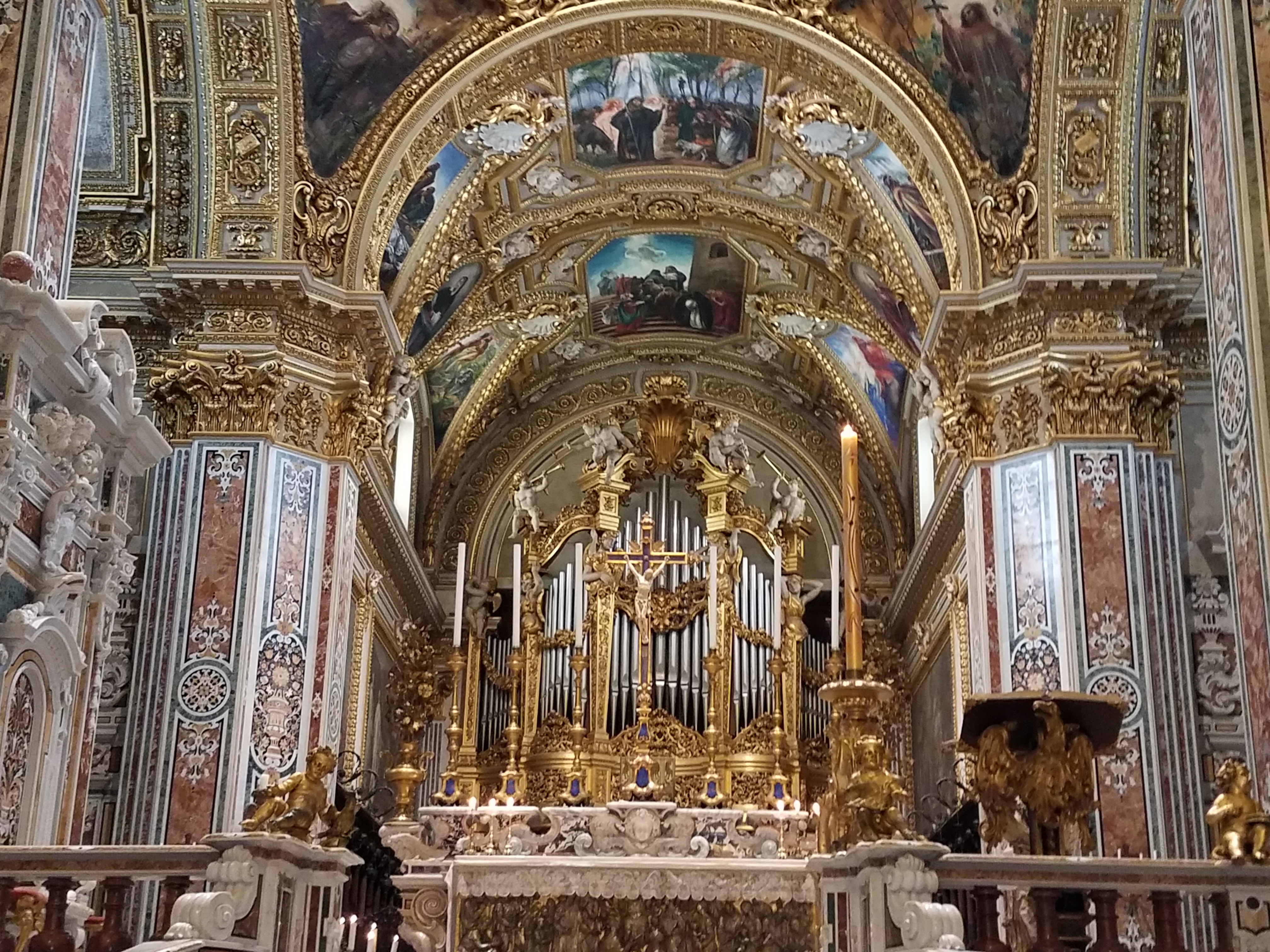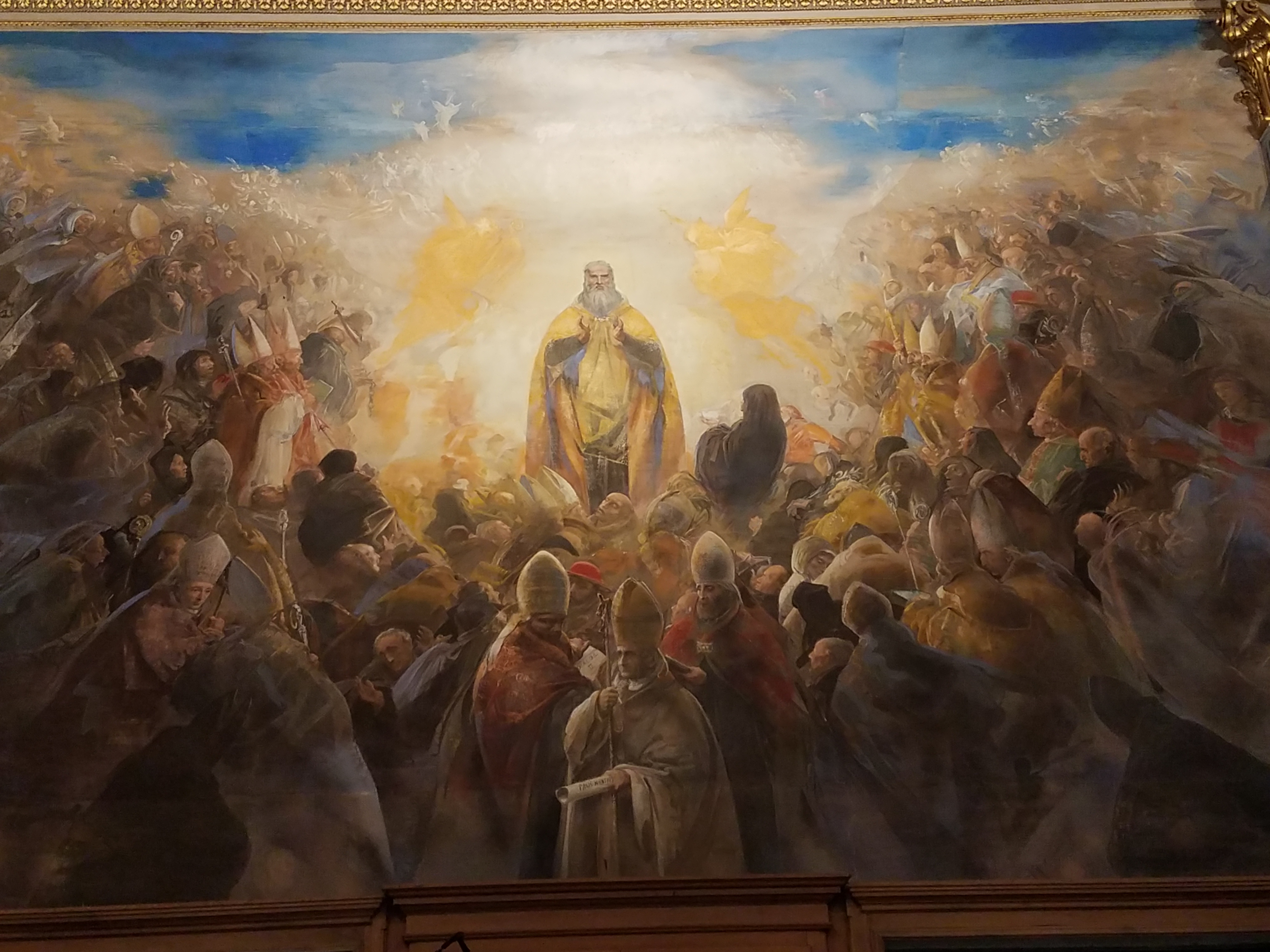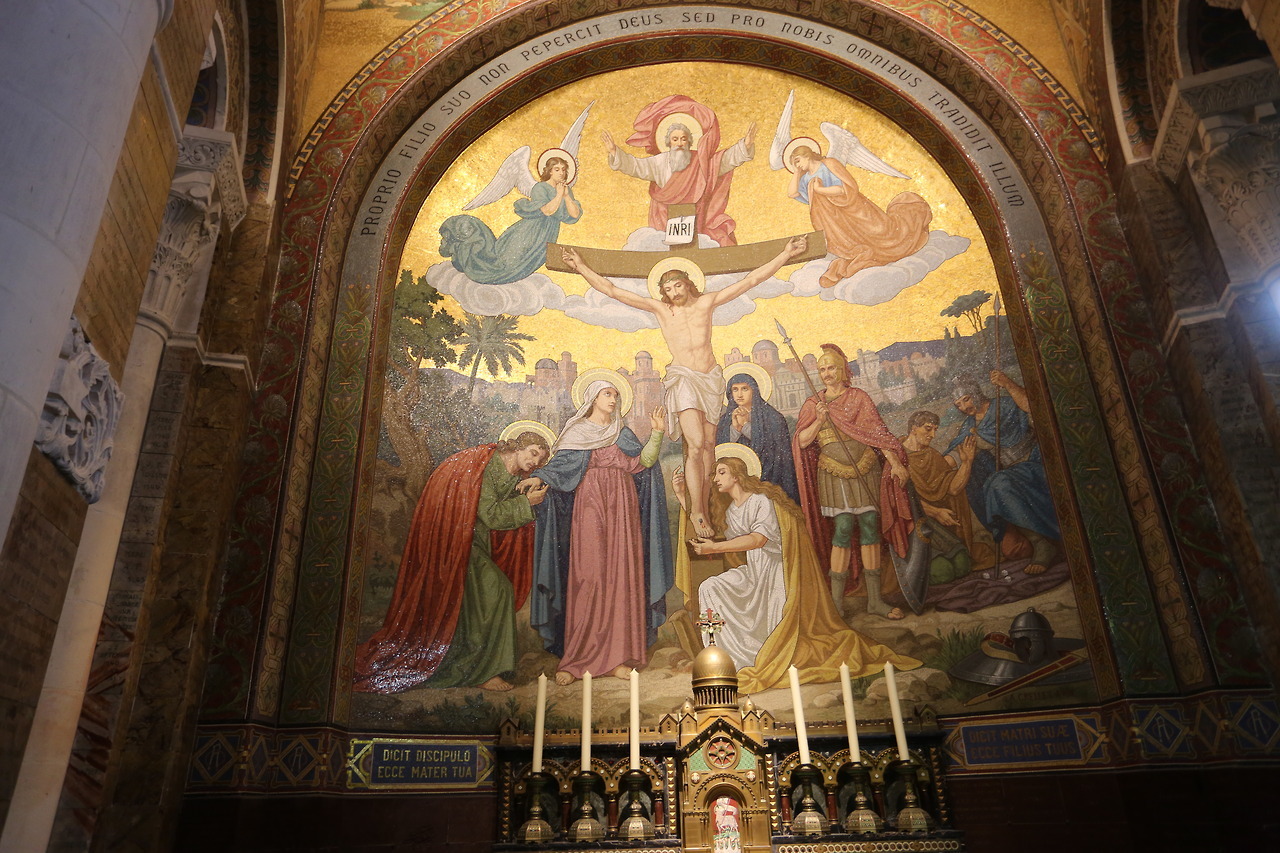Is. 25:6-10a; Ps 23:1-6; Phil. 412-14, 19-20; Mt. 22:1-14
Dressed for success! The Lord has prepared his wedding banquet for his people and we are being invited to the wedding feast but before we come, we must be prepared by being dressed for success. In the gospel today the Lord offers us a parable in which he compares the kingdom of God to a wedding feast. If the kingdom of God is already at hand, then the wedding feast is ready for us and it begins with the celebration of the Mass.
Many have been invited of the house of Israel he tells the chief priests and elders but few are chosen. Many of the invited guests have refused to come thus the invitation has gone out to others on “the main roads” which opens the invitation to all the Samaritans and Gentiles. The invitation however requires that we come wearing the proper wedding garment, that we be dressed for success.
Before we come to be received by the Lord, it requires us to be dressed for success with the garment of righteousness, the undergarment of purity, the headdress of humility, and the shoes of justice. Otherwise, the Lord will ask of us, ““My friend, how is it that you came in here without a wedding garment?” Dressed for success also requires of us to be washed clean of our sins. It begins with a good confession and a commitment to avoid sin and all its near temptations. We are not to come to receive the Lord in mortal sin or the Lord may pronounce those words we hear today in the gospel, “Bind his hands and feet, and cast him into the darkness outside, where there will be wailing and grinding of teeth.” Just because Jesus calls us “my friend” does not excuse of from the proper attire to enter the kingdom of God.
The guest to the wedding feast must also bring the gifts that come from the fruit of charity. Charity atones for many sins and helps purify the undergarments of our passions. Without the gifts of charity, the other garments only appear as illusions of righteousness, humility, and justice. To be dressed for success it takes time and cannot be rushed right before the wedding feast. We work on our dress on Sunday as we are sent forth into the world to live a virtuous life and do the work of charity. This work is carried out through every opportunity our Lord gives us to encounter him in the world. It is how we respond to the calling of our God given purpose. We multiply the fruit of our gifts for the Lord until we return to the wedding feast the next Sunday where he receives us once again having prepared the table of the Lord.
This is why the Lord says, “many are invited, but few are chosen.” Though we are all created by God with a God given purpose, our lives don’t center around our calling. We approach the world in terms of how the world can satisfy us and all our needs and wants. We don’t consider enough how we can serve our God in the blessings we receive from him. We think in terms of what “I” can do before we even think of what God can do for us and through us. If we approach life ego-centrically then our choice of garments turns into self-righteousness, pride of self, rationalization that always justifies our actions, and the impurity of our concupiscence taking over our hearts. How can the Lord respond to us but with the words, “I do not know you.”
The feast that the Lord prepares for his people is with “juicy, rich food and pure, choice wines.” For those who have dressed for success death has already been destroyed forever having prepared to enter the kingdom of God as the soul separated from the body at the end of our mortal life and enters the glory of God penetrated by the light of holiness. No one knows what the Lord has prepared for those who love and serve the Lord. It is only a comparison to juicy rich food and wines.
No one can go through mortal life without shedding tears. Suffering came into the world by disobedience thus obedience opens the wardrobe to wear the proper wedding garment. When God wipes away our tears, he brings about our healing and he will reveal to us his plan for salvation that we may participate as heirs to the kingdom. What does this mean? It means that God is a personal God who desires to make himself known to us. In coming to know God we are guided to wear the appropriate garment for each event of life, knowing also how to respond to the test and challenge of life.
Sometimes we must put on the garment of warrior for Christ while at other times we must wear the robe of silence and perseverance. The wardrobe the Lord offers us may also be garment of sacrifice or the colorful dress of joy. Knowing what to wear must meet with the appropriate circumstances and desires of the Lord. This is why we must always seek the Lord first and remain attentive to his voice in our hearts, mind, and spirit.
Today in order to “live in the house of the Lord all the days of my life” we begin by accepting Jesus into our hearts to be transformed into his temple. The Lord desires that we be the temple of the Lord as we open ourselves to him then his house becomes one with us in being as we receive him in our souls. Today this word is fulfilled in our hearing as we come to receive him, body, blood, soul, and divinity in the Eucharist. The house that the Lord builds in us cannot be denied as we place our trust in him. We walk in the dark valley of sin in this world but fear no evil. We have been anointed with the oil of salvation and as we like to say, “Ain’t no party like a Catholic party, cause a Catholic party don’t end”. It lasts forever, thanks be to God.







Recent Comments